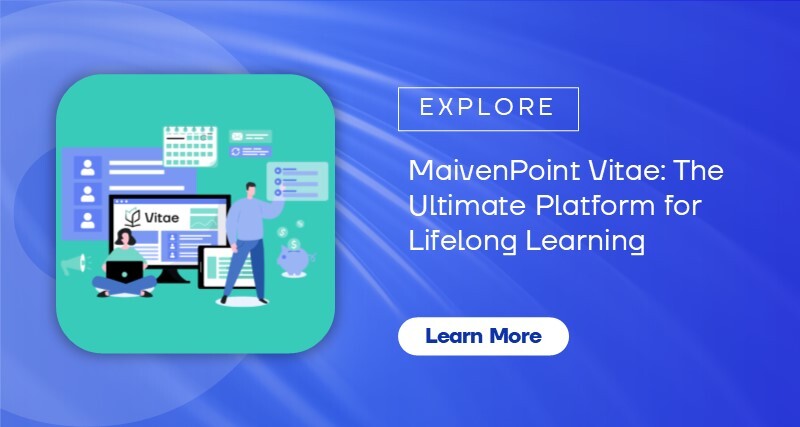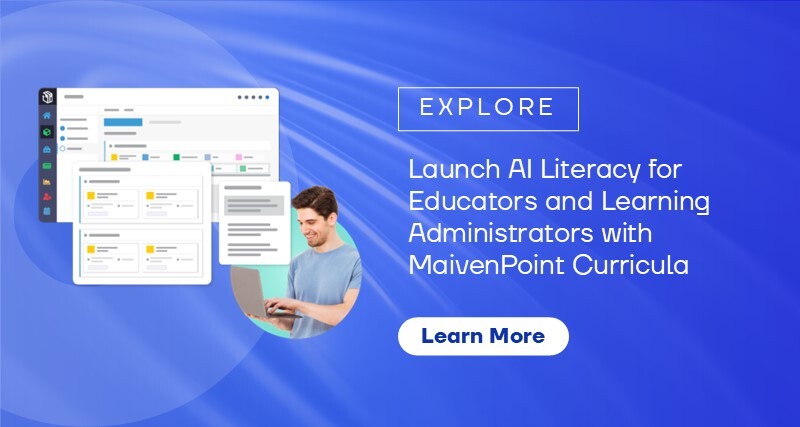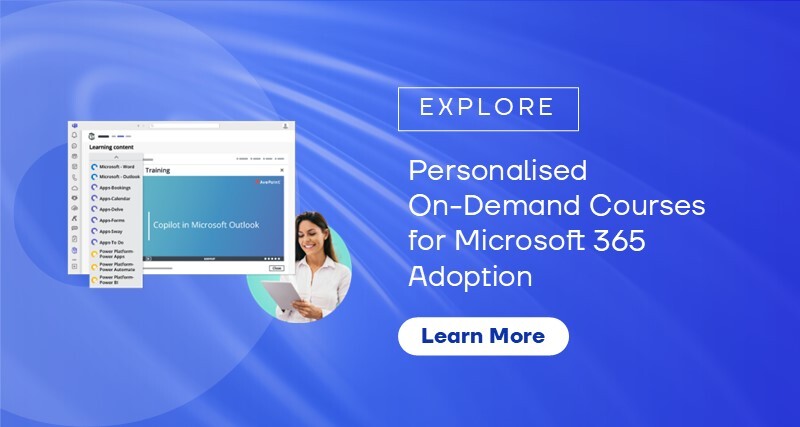In an era of rapid technological advancement, AI’s transformative potential can reshape education for students and teachers alike. To realise this potential, teachers and administrators must dispel fears around leveraging AI in educational settings and empower students to thrive with the help of personal learning pathways.
This means pushing for AI literacy among teachers and students to help them understand how AI can enrich the learning experience while also helping them to appreciate AI’s limitations and the ethical ways to harness this technology for effective learning.
By prioritising AI literacy, schools can unlock new opportunities for student engagement, ensuring that technological innovations serve as inclusive bridges to knowledge and opportunity.
AI Literacy for Educators: Revolutionalising Teaching Methods
Grounding AI in educational contexts involves helping teachers understand that AI is not a replacement but rather a tool to enhance their capabilities and boost their productivity. To help contextualise AI in learning environments, digital transformation leaders can focus on the following areas of action:
- Collaboration. Reframe AI as a collaborative assistant that empowers teachers to focus on high-value educational interactions by automating routine administrative tasks like grading and proctoring.
- Classroom demonstrations. Showcase practical AI applications through live demonstrations that illustrate how AI can supplement, not substitute, the irreplaceable human elements of teaching and student engagement.
- Skills empowerment. Provide targeted training programs that equip educators with the knowledge and confidence to effectively integrate AI tools into their teaching practices and curriculum design.
- Continuous training. Establish ongoing professional development workshops that keep educators updated on emerging AI technologies and their evolving potential in educational environments.
- Ethical guidance. Develop comprehensive guidelines that address data privacy, accessibility, and responsible AI usage, ensuring teachers understand the ethical considerations of technological integration.
Addressing parental apprehensions and misconceptions about AI is also important. Clarifying, for instance, that using AI is not cheating but a strategy for enhancing learning can help alleviate concerns. Similarly, AI-integrated platforms like MaivenPoint Vitae can provide much-needed support for teachers to optimise rote tasks while enhancing their methods to meet learning objectives. For example, using Vitae’s AI course builder, educators or course planners can leverage AI lesson planning to structure curriculum content into multiple topics and sessions, each with learning objectives clearly elaborated.

Empowering Students with AI: Agency Over Technology
Students have the most to gain from the strategic integration of AI in learning environments. At the same time, students need to learn that AI tools are precisely that — tools that require specialised know-how to deliver a unique educational experience. More to the point, empowering students with AI involves giving them agency over how they use technology in their studies. One way to do this would be to help students envision how AI tools can help them create a lasting and positive impact on their communities. For example, students can use AI to analyse data for community projects or create applications that address local issues. This not only enhances their technical skills but also fosters a sense of responsibility and engagement.
Graduating students, in particular, can be empowered with essential skills that will help prepare them for life after the classroom and ensure that they thrive in AI-driven workspaces. Indeed, sceptical educators and parents may be surprised to know that students themselves expect AI to enhance their learning experience — not just automate tasks. They want AI tools that help them understand complex concepts, provide personalised feedback, and support collaborative learning.
Students are also more likely to engage with assignments that are meaningful and relevant to their erudition. AI can help create such assignments by providing real-time feedback and personalised learning paths. For example, AI can suggest additional resources or activities based on a student’s performance, making learning more engaging and effective.
Harnessing AI for Academic Integrity and Literacy Building
Contrary to fears around students using AI to cut corners in learning, AI solutions can provide guardrails to help maintain academic integrity. For example, MaivenPoint Examena offers live and automated proctoring to monitor students while they take exams to detect and prevent cheating. With browser lockdown, Examena can also restrict access to other applications, websites, or resources on student devices during the exam. When it comes to essay-type tests and assignments, Examena can integrate with plagiarism detection tools to check for copied content. Educators can also enable AI marking on Examena for text content in student responses for both Essay and File upload questions.
AI also has the capability to streamline not just the existing learning and teaching experience in schools but also to foster a lasting impact by making education more accessible and equitable. For example, AI-driven tools can translate educational materials into different languages, making them accessible to non-native speakers. For differently abled students, AI tools can deliver bespoke learning experiences by adapting content to their specific needs, such as converting text to speech for visually impaired students or providing real-time transcription and captions for those with hearing impairments, ensuring they have equal access to classroom content.
By analysing a student’s reading habits, comprehension levels, and progress over time, an AI tool can also recommend appropriately challenging and engaging texts. MaivenPoint Curricula, an advanced educational platform, can leverage AI algorithms to analyse student performance data to tailor reading materials and exercises to a student’s literacy level, ensuring that each student works with content that is appropriately interesting and challenging. This ensures that each student receives the right level of support and opportunities to support their continuous progress, boosting their literacy more effectively than a one-size-fits-all method could.
More importantly, delivering customised learning experiences that meet students where they are ensures that every student has the opportunity to succeed.

The Future of AI in Education: Scaling AI Initiatives
To be substantial, learning must go beyond the four walls of a classroom. For educators and learning administrators, there is a clear call to support programs that will equip students with the appreciation and effective use of AI in their future workplace.
Here are a few examples of initiatives that educators can organise:
- Preparing students for the workplace. Schools need to prepare students by integrating AI into the curriculum and providing hands-on experience with AI tools. This includes teaching students how to use AI for data analysis, automation, and problem-solving.
- Holding student promptathons. Promptathons are events where students use generative AI to create innovative applications. For example, students can develop AI-driven apps to address environmental issues, provide innovative solutions to traffic, or facilitate better healthcare services.
- Organising AI innovation fairs. These fairs allow students to showcase AI projects and solutions they have developed. It encourages creativity, collaboration, and a deeper appreciation of the practical applications of AI knowledge in real-world scenarios, as they explore future career options.
Enhance AI Literacy to Foster Inclusive Education with MaivenPoint
AI literacy among teachers is crucial for integrating AI into educational settings effectively. By reframing AI as a collaborative tool, providing targeted training, and addressing ethical considerations, educators can enhance their teaching methods and create equitable opportunities for all students. Additionally, empowering students with AI tools fosters engagement, responsibility, and prepares them for future AI-driven workplaces.
MaivenPoint supports these initiatives by offering platforms like Vitae, Curricula, and Examena, which streamline administrative tasks, provide personalised learning experiences, and maintain academic integrity. By leveraging AI, MaivenPoint ensures that both educators and students can thrive in an inclusive, technologically advanced educational environment.
Learn how to train your teaching and IT community on new AI tools like Microsoft 365 Copilot in just 24 hours with our program.




